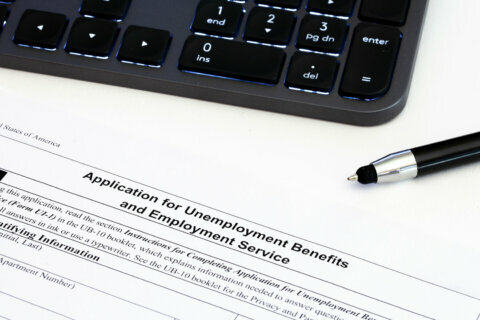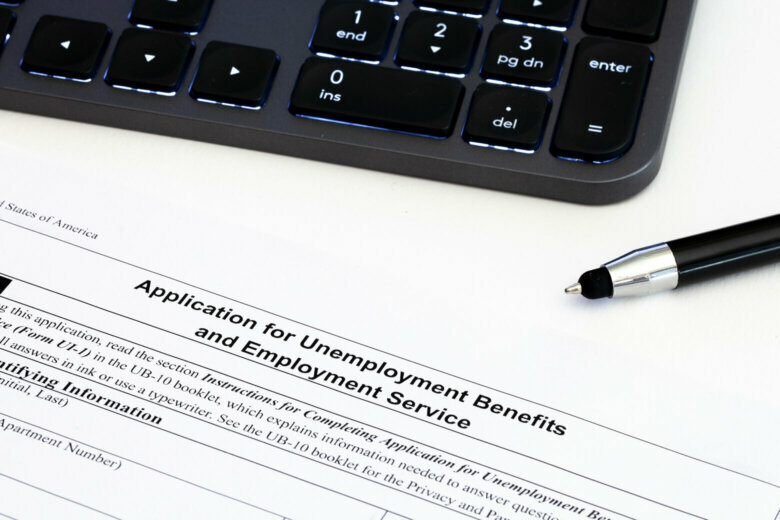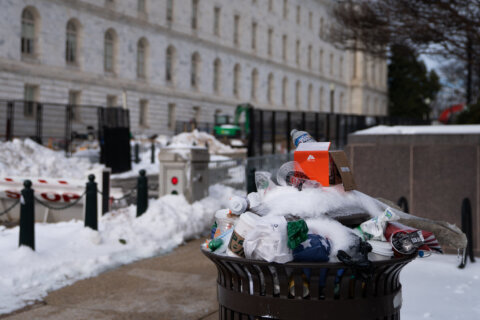
D.C. residents detailed their hardships in fighting to get their unemployment benefits during the COVID-19 pandemic to a council committee Wednesday.
Their stories were part of a public oversight hearing held by At-Large Council member Elissa Silverman, who chairs the Committee on Labor and Workforce Development.
Many residents, such as Robert Duker, signed up to tell their experiences of trying to get assistance from the District’s Department of Employment Services, or DOES.
Duker, 72, said he was laid off from his job as a bellman at the Hyatt Regency on Capitol Hill when the pandemic shutdown started. It was the first time he had been out of work in 44 years.
“A week later, I applied and received a letter from the unemployment office, stating I had been approved for $425 a week and would get my initial check April 11, 2020,” he said.
Then, as Duker tried to use the city’s online system, he said he got locked out. He spent months sending in paperwork and calling to find out what was going on.
- Sign up for WTOP alerts
- Latest coronavirus test results in DC, Maryland and Virginia
- Coronavirus FAQ: What you need to know
- Coronavirus resources: Get and give help in DC, Maryland and Virginia
- Maryland officials warn of lengthy timeline on coronavirus vaccine
- US outlines sweeping plan to provide free COVID-19 vaccines
- Kennedy Center announces first in-person performances since pandemic closure
- 4 Smithsonian museums to reopen in DC with conditions
Looking for more information? D.C., Maryland and Virginia are each releasing more data every day. Visit their official sites here: Virginia | Maryland | D.C.
Finally, this week, Duker said he was told that his case manager had left the agency, and that he would have to wait for a new one to be assigned to him.
“If I were someone who did not have any other source of income, I don’t know how I would have made it through,” he said.
The long process put Duker in debt, he said, since there were bills he couldn’t afford to pay on just his pension.
Another resident, Taalib-Din Uqdah, shared his experience of trying to get put into the system.
“I can’t tell you the number of times I heard the words ‘escalation,’ ‘subject matter expert,’ ‘seven to 21 days,’ ‘supervisor,’ ‘validation to be attached to the file’ and ‘PUA examiner,’ all in the same sentence,” Uqdah said.
It took four months before he received his first check from the unemployment office, and he still has not been paid the amount he is entitled to, he added.
For Nataki Edison, things seemed to be working in the beginning. She received six payments in April and May. Then, without explanation, they stopped.
“After I received my last payment in May, a note appeared in my account saying my claim was unpayable,” she said.
So, she tried to figure out why, which was a process that felt impossible to her, she said.
“For the past four months, I have spent countless hours trying to figure out why my claim was not payable,” Edison said. “One week, I tried calling DOES, three days in a row. Each day, I was on hold from 9 a.m. all the way through until 5 p.m. No one answered the phone.”
Daniel Katz, with the Washington Lawyers’ Committee for Civil Rights and Urban Affairs, said the situation is having a heavier impact on D.C. residents who already are struggling against multiple disparities.
“Since the start of the pandemic in March, we’ve seen a dramatic increase in unemployment,” Katz said. “And the effect of this increased unemployment is felt most acutely in the communities of color, exacerbating existing economic inequality.”
Katz said before the pandemic, the median white family income in D.C. was approximately four times that of the median Black family income. Since the pandemic, due to occupational segregation, discrimination and other disparities, Katz said workers of color have experienced a much greater job loss.
“White non-Hispanic workers’ unemployment has peaked at 12.8%,” said Katz, “Black workers have seen their unemployment peak at 16.7%, and Hispanic workers at 18.5%. The most devastating effects of the unemployment caused by the pandemic has been felt by Black women, whose unemployment rate has risen to 19%.”
He also said Wards 7 and 8 are where the unemployment rates remain the highest. In July, Ward 7’s unemployment rate was over 14%, and in Ward 8, it was just under 19%.
According to Katz, the technology gap between communities is making things worse.
“Since the start of the pandemic, applicants must apply for benefits online or by telephone,” he said. “As a result, countless numbers of low-wage workers who do not have a home computer have not been able to apply online because the system does not accept applications from hand-held devices, which is the method by which most low-wage workers access the internet.”
Others have tried to use the phone system to apply, with little success.
Katz said his office has heard a lot of complaints.
“Numerous workers we have talked to have reported calling DOES and being hung up on; not being able to get through; waiting for hours on hold without talking to a DOES representative; being instructed to leave a message for a call-back and never receiving a call; receiving inadequate or simply wrong information or instructions from call center employees; and not being able to file weekly claims by phone and losing benefits because they’re not able to complete that requirement.”
DOES Director Unique Morris-Hughes was initially scheduled to testify, but then it was announced she would not be part of Wednesday’s hearing. Her appearance was rescheduled for Sept. 30 at 3 p.m.









